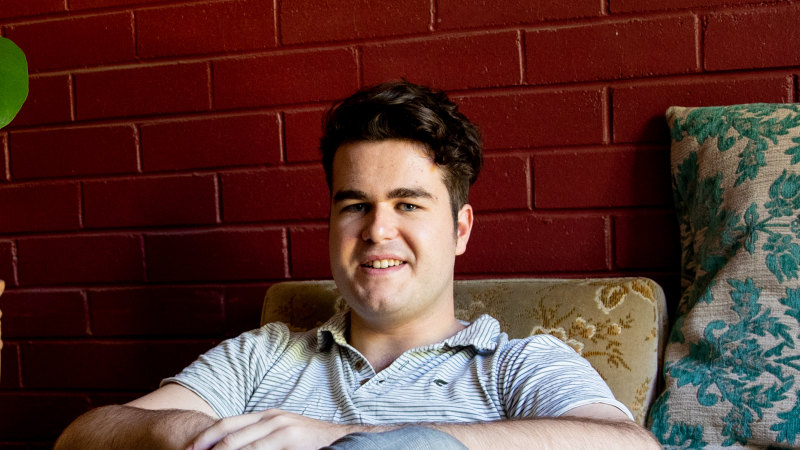HECS? Help! Why your student debt is about to skyrocket
The almost three million Australians with student loans will likely see the size of their debt increase by at least 6 per cent on June 1, more than double the usual increase, prompting calls for the government to freeze student debt increases for the next two years.
Student debt, known as HECS-HELP, is indexed in line with inflation. Between 2016 and 2020, the average indexation rate was less than 2 per cent, and it is often said that student debt is good debt as it is far cheaper than other types of debt and can be slowly paid off over time.
Law student Harry Ryan has a large student debt and wants to see a cap on its indexation in the years ahead.Credit:Edwina Pickles
However, due to the recent rise in inflation, HECS-HELP has seen some outsized yearly increases, growing 3.9 per cent last year. Despite early signs inflation is slowing, it will likely remain elevated for some time, meaning those with student debts can expect further significant increases in the years ahead.
Harry Ryan, 23, from Sydney, has an undergraduate degree in communications and is studying for a law degree. He has student debt of more than $100,000. He says most students, like himself, cannot put a “grand or a few grand” from savings into paying off their student debt.
The Labor Party member, who is also active in the students’ association at UTS where he studies, says it is not only the indexation applied to student debt that had seen his debt grow but also the increasing cost of some degrees.
In 2021, the fees for degrees changed to encourage more students to study specific fields that the government considered to have more job opportunities.
The cost of some degrees increased dramatically, others become cheaper and some did not change much at all.
Law became considerably more expensive. Ryan started his law degree after the fee increase, which, together with studying for a second degree and indexation has seen his debt balloon.
“The loan scheme is a good one, but I would like to see the costs of degrees come down and the annual indexation to be capped,” Ryan says.
Bailey Riley, the national president of the National Union of Students, says the union is worried about how much student debt is set to grow and is calling on the federal government to freeze the indexation of the debt for the next two years.
Student debts start to be paid off – through tax returns – once annual income hits $48,361 at 1 per cent of income. The repayment percentage increases with higher bands of income. Someone with an income of $60,000 pays 2.5 per cent, or $1500.
Assuming an indexation rate of 6 per cent is applied on June 1, $1,440 would be added to the average-sized HECS balance of about $24,000, while $3,000 would be added to a $50,000 debt. In 2021-22 almost 280,000 people had debt of more than $50,000.
The total amount of student debt was almost $69 billion in 2020-21, compared to $25.5 billion in 2011-12.
Indexation is based on inflation data over the previous two years to March 31, and the indexing is not applied to that part of the debt that is less than 11 months old.
The exact indexation to be applied on June 1 will not be known until April 26, when the Australian Bureau of Statistics publishes the March quarter CPI figures.
Kate Hall, group executive of Futurity Investment Group, an education finance company, says there will be many students, graduates and parents who do not even realise how quickly student debts are growing.
“Students are feeling the need to do additional study, post their undergraduate [degree],” Hall says. When they start work and start paying off their debt they find that the growth in their wages is not nearly at the level of indexation applied to their student debt, she says.
She says that all debts, including student debts, are taken into consideration by lenders when assessing people for home loans. “It really can impact how much they can borrow to buy a home,” she says.
Student debt is regarded as good debt in that you are investing in yourself. Financial planners say those in a position to pay off their debts should pay down the debt with the highest rate of interest first.
- Advice given in this article is general in nature and is not intended to influence readers’ decisions about investing or financial products. They should always seek their own professional advice that takes into account their own personal circumstances before making any financial decisions.
Most Viewed in Money
From our partners
Source: Read Full Article


